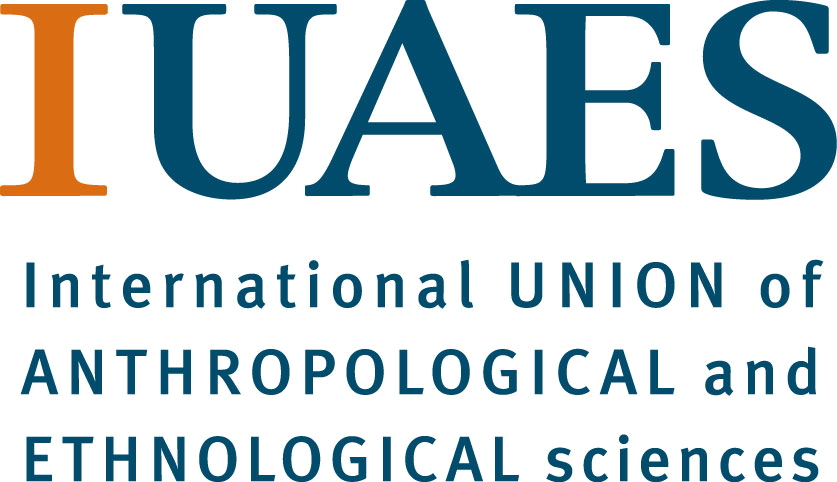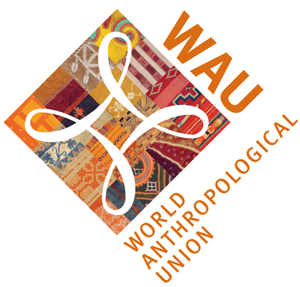Indian Anthropological Association (IAA)
The idea to form the Indian Anthropological Association (IAA) was conceived in 1964 in Dalhousie, Himachal Pradesh, when an all India summer school was organized by the Department of Anthropology, University of Delhi. The participants contributed part of the honorarium money to forming an association to cover the whole of India to further the interests of the discipline in the country. Prafulla Chandra Biswas, the then head of the department at the University of Delhi, was the facilitator. This idea came in response to a vacuum that arose in the organizational leadership of Indian anthropology in the first half of the twentieth century. The professional associations, such as Ethnographic and Folk Culture Society of Lucknow, Uttar Pradesh, founded by D. N. Majumdar in 1945, and the Anthropological Society of Bombay, in western India, founded by Edward Tyrrell Leith in 1886, were engaged in exploring avenues for the application of anthropological knowledge in national life. These societies had their own publications. The Journal of the Anthropological Society of Bombay was started in 1886 and The Eastern Anthropologist in 1947 in Lucknow. These societies ecommended and lobbied for the creation of university departments and for professional teaching and research programs for anthropology in India.
It was only in the year 1969 that IAA was registered under the Societies Registration Act 1860 as an all-of-India body with its headquarters at the Department of Anthropology, University of Delhi, in the capital of India. A few of those involved in this initiative were Irawati Karve, Leela Dube, N.S Reddy, Inder Pal Singh, S.C Tiwari ,R. P. Srivastava, P. K. Seth, M. R. Chakravarthi, D. K. Bhattacharya, and L.P. Vidyarthi. Prof M.N Basu was the first President.
The memorandum of association of the IAA spelled out the following objectives: to promote study, research, and publications in anthropology in India; to coordinate anthropological activities across different parts of India; to explore ways and means to apply anthropology in the larger interest of the community and nation; and to promote the professional interests of anthropologists in India. Thus, the IAA focuses on understanding the diversity and variations that the Indian society, culture, and population exhibit, without ignoring the important findings of world anthropology. It seeks to provide platforms for anthropologists and those working in allied disciplines to promote interest and encourage research through publication of its journal, Indian Anthropologist, and through holding seminars and conferences.
The IAA's constitution is truly democratic in essence and federal in spirit. At the time of the IAA's founding, it was markedly different from those of various other regional associations, which were primarily situated in particular ethnic, linguistic, or local specificities. The IAA is cosmopolitan in its membership and agenda. There are five regional chapters for the five distinct geographical regions of India, each headed by a regional secretary. In addition to individual membership, the IAA offers institutional membership to other professional bodies with the intention to create a network of academic and associational relationships among the community of scholars. Through varieties of membership, such as annual member, associate member, student member, life member, and foreign member, the association attempts to bring scholars of various levels of maturity together for discursive deliberations on topics of contemporary relevance. The practice of recognizing international scholars of great repute and accomplishment was started by the IAA in 1971 and continued until 1982. During these twelve years, nine scholars were given the honorific title of distinguished fellow: Christoph-von-Fürer- Haimendorf of the United Kingdom (1971), Margaret Mead of the United States (1973), Chie Nakane of Japan (1976), Božina Ivanovic´ of Yugoslavia (1976), N. W. Howells of the United States (1978), Sol Tax of the United States (1978), Masao Oka of Japan (1978), Cyril S. Belshaw of Canada (1978), and H. Walter of Germany (1982). The practice was revived after twenty-two years in 2004, and in that year five pioneering Indian anthropologists—B. K. Roy Burman, Leela Dube, S. C. Tiwari, T. N. Madan, and D. P. Mukerji—were conferred with the title of distinguished fellow. In the following year, Sachchidananda was conferred with the same honour. The IAA was at the helm of its own affairs in 1978 when it organized the IUAES world congress under the leadership of L. P. Vidyarthi in New Delhi. This historic event brought Indian Anthropology on a global platform.
Indian Anthropologist, the official Journal of IAA is published biannually without any break for last 50 years. The inaugural issue of the journal came in 1971, on the occasion of the birth centenary celebrations of Rai Bahadur Sarat Chandra Roy , the father of Indian anthropology. The Founder Editor in Chief was S.C Dube . Since then the journal has successfully endeavoured to reflect in its pages the range and diversity of contemporary research and writing on Anthropology of India.
The IAA has also been instrumental in getting anthropology introduced into the civil service examinations, which are conducted every year to recruit dynamic people to the Indian bureaucracy, the government service in India with the most coveted posts. Anthropology was a subject in the civil service examinations until the mid-1960s. It was discontinued in the late 1960s and it was only in 1983, when L. P. Vidyarthi, the then president of the IAA, undertook a lobbying effort that it was reintroduced. The IAA archives contain correspondence between the President of the association and the chairman of the Union Public Service Commission, the official body responsible for conducting such examinations. The reintroduction of anthropology to these examinations ensured that administrators develop anthropological sensitivity for dealing with poor and excluded people; it opened up the possibility of an "anthropology without borders," a matter that world anthropologists are currently talking some three decades later.
The IAA also took a strong stand when the Indian National Science Congress Association, founded in 1914, decided to do away with anthropology in 2000. Anthropology had existed as a separate section, under the label "ethnography." The IAA was vehemently opposed to this idea of doing away with the subject. At a general meeting held during the eighty-eighth conference of the Indian Science Congress at New Delhi in 2001, the members expressed their serious concerns. A delegation under the leadership of J. S. Bhandari, the then President of the IAA, went personally to the general president of the congress. Though it was grouped together with psychology and behavioural sciences, the term "anthropology" was retained in the title of the section. The proposed title "Behavioural and other Allied Sciences" was replaced with "Anthropology and other Behavioural Sciences." There are several such examples of the IAA taking up an official position to protect the interests of the discipline and ensure its unhindered promotion.
In 2012, IAA organized an international conference on ' Anthropology of Global Issues' in collaboration with World Council of Anthropological Associations ( WCAA) and Association of Social Anthropologists of United Kingdom and Commonwealth (ASA) . It is worth saying that, but for the WCAA's commitment to and support for regional and national associations of anthropology, it would not have been possible to organize the conference in more inclusive ways. Indeed, senior and younger anthropologists from across the length and breadth of India participated in the first ever WCAA symposium, organized in New Delhi in April 2012. One of the important initiatives undertaken during the conference was to launch a Young Anthropologists Forum comprising graduate students from both sociology and anthropology. This was done in the presence of James Fairhead, the then chair of the ASA, and Rajesh Mishra, the newly elected general secretary of the Indian Sociological Society, clearly conveying a message that this forum is not insulated in terms of either disciplinary or geographical boundaries.
The presence of the WCAA and the ASA in India in 2012 invigorated the discipline and transformed its capacities through enriched and effective communications among scholars from India and abroad. India's participation in two of the WCAA task forces (on ethics and advocacy and outreach activities) has proved very useful. The young scholars are taking a keen interest in the activities of the task forces that are organized at home. The idea is to create a future leadership in anthropology that is equipped with the needed skills to carry out a dialogue with the leaders of world anthropology, not in an asymmetrical or paternalistic idiom but in an empowered and egalitarian space where the dialogue between the local/national anthropological traditions and world anthropologies is carried out with the principles of mutuality, respect for difference, and dignity.
Selected portions taken from original article written by
SOUMENDRA MOHAN PATNAIK,
University of Delhi, India
published in:
The International Encyclopedia of Anthropology. Edited by Hilary Callan.
© 2018 John Wiley & Sons, Ltd. Published 2018 by John Wiley & Sons, Ltd.
The Ethnographic and Folk Culture Society, Lucknow
The Ethnographic and Folk Culture Society, is a 75 years old organization. It was founded by the Late Prof. D.N. Majumdar, a pioneer in the field of Indian Anthropology and tribal research, in the year 1945. It is one of the foremost organizations working on various aspects of Indian Society and Culture in general and Schedule Castes and Schedule Tribes development in particular. The Society has about 800 life members spread all over the world which consists of social scientists, anthropologists, social workers, archaeologists, bureaucrats etc. The society regularly publishes 3 journals (The Eastern Anthropologist; Indian Journal of Physical Anthropology and Human Genetics; Manav), runs a public library (The KS. Mathur Public Library) and a museum (The D.N. Majumdar Museum of Folk Life and Culture),and conducts conferences regularly.
Department of Anthropology, University of Hyderabad
The Department of Anthropology, University of Hyderabad has emerged as one of the premier departments in India. The department has received recognition for both teaching and research, which focuses on Social and Cultural Anthropology. The faculty have diverse backgrounds and interests which allow them to provide specialized elective courses, such as Medical Anthropology, Development Anthropology, Ecological Anthropology Business Anthropology, Urban anthropology, Anthropology of Public Policy, Natural Resource Management and Family and Kinship Studies. There are also a wide variety of internships that the Department facilitates in both public and private sector in order to give students opportunities to practice their skills. The department is particularly proud of the placement and the achievements of its alumni.
Discipline of Anthropology, IGNOU
The discipline of anthropology is located in school of social sciences , Indira Gandhi National Open University, New Delhi.
The School has research programme that apply newer methodologies to elicit more creative response, both from the discipline's own perspective and an interdisciplinary perspective.
It imparts training in all branches of Anthropology connecting theory with application and policy with practice.

